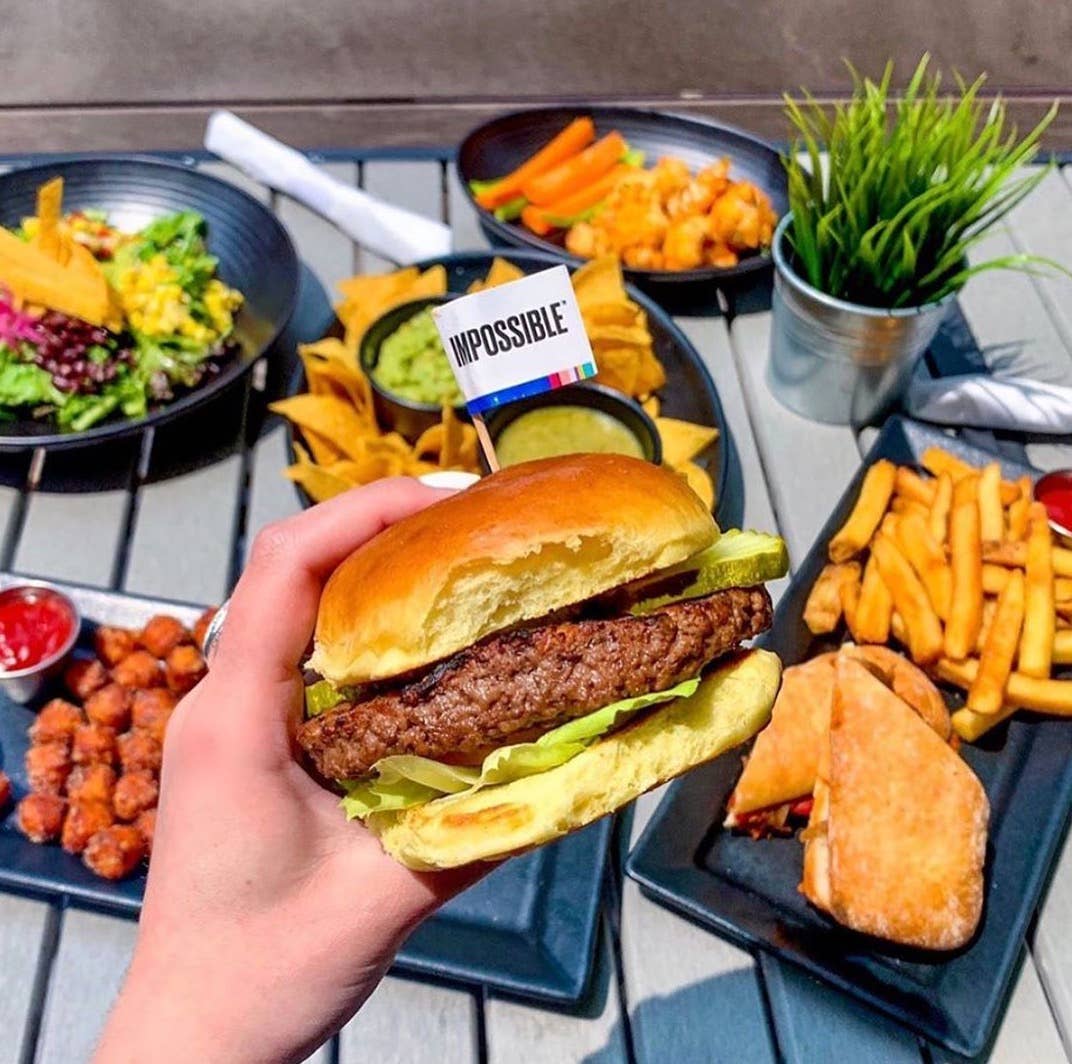
Impossible Foods Goes Direct-to-Consumer With 2-Day Delivery
It just got easier to get America’s favorite meatless meat into your kitchen: Impossible Foods is now selling its plant-based burgers and meats online with free shipping—including a speedy 2-day shipping option.
The plant-based food tech company launched in 2016 with a food service model, which meant that you could only get their plant-based patties in restaurants. Then in 2019, Impossible was made available in retailers. Now, in 2020, the alt-meat juggernaut ushers in a new era of direct-to-consumer plant-based meat with its online storefront. Since the COVID-19 pandemic, more people have been eating plant-based meats, a meat shortage has hit the supply chain (due to outbreaks of the virus at meat processing plants, causing plant closures) and the impact of this has been a major impetus for companies like Impossible Foods to rethink their sales models and increase production.
Meatless Meats Sales Have Risen 35 Percent During COVID-19
“With America facing meat shortages for the first time since World War II, we want to make it as easy as possible to get Impossible Burger — whether you shop in person at your local supermarket, with Instacart or other delivery services, or direct online,” said Impossible Foods President Dennis Woodside in a company statement. “Shelter-in-place and social distancing restrictions due to COVID-19 altered our buying and eating habits -- and many of these changes are permanent. Our intention is to make Impossible Burger available everywhere people shop and eat, including directly from our online store.” Sales of meatless meat have risen 35 percent this spring, according to a report from Nielsen, as consumers have sought out healthier options.
Online Options for Meatless Meat Grow Every Day
Ready. Set. Make room in your freezer. The current ordering options on their website are only for “family size” quantities. But with BBQ season in full swing, stocking up may not be an issue—plus you now have an excuse to help friends and family see just how good not eating meat can really be. You’ll find four different family-size options to choose from on their website:
- “Impossible™ Convenience Pack” includes four 12-oz. packages for $49.99
- “Impossible™ Combo Pack” includes two 12-oz. packages and 10 quarter-pound patties for $59.99
- “Impossible™ Family Pack” includes a single, 5-lb bulk package for $64.99
- “Impossible™ Grilling Pack” includes twenty quarter-pound patties for $69.99
Since the beginning of COVID-19, Impossible Foods expanded buying options with collaborations with restaurants nationwide selling Impossible Burger inventory directly to consumers. Also, e-commerce grocery startup Cheetah recently began selling Impossible Burger with “contactless” pickups throughout the San Francisco Bay Area.
The Skinny On Impossible Meats' Nutrition
There are some compelling reasons an Impossible Burger may be a better option from a health perspective. Impossible meat has as much protein and iron as a comparable serving of cow ground beef. One 4-ounce serving of Impossible Burger has 0 mg cholesterol, 14 grams of total fat, 8g of saturated fat and 240 calories. To put this in perspective, a conventional 4-ounce patty from a cow has 80 mg cholesterol, 23 grams of total fat, 9g of saturated fat and 290 calories. Impossible Burger also doesn’t contain any animal hormones or antibiotics. It is also kosher, halal and gluten-free certified.
Beyond health, because Impossible is made from plants and bioengineered, it uses 96% less land, 87% less water and 89% fewer greenhouse gas emissions compared to conventional beef from cows. The company has also been mindful of the environment as it relates to its new direct-to-consumer option with packages being compostable and recyclable.
What’s Next? Nothing is impossible ... as the Company Gets Set to Scale
If you don’t want to go with the online family-size option, you can find Impossible Foods’ products at more than 3,000 grocery stores and distributors nationwide, including Albertsons, Gelson’s, Kroger and others. For now, there is no signs of a slowdown. The company says it plans to expand its retail footprint more than 50-fold this year alone.
More From The Beet






